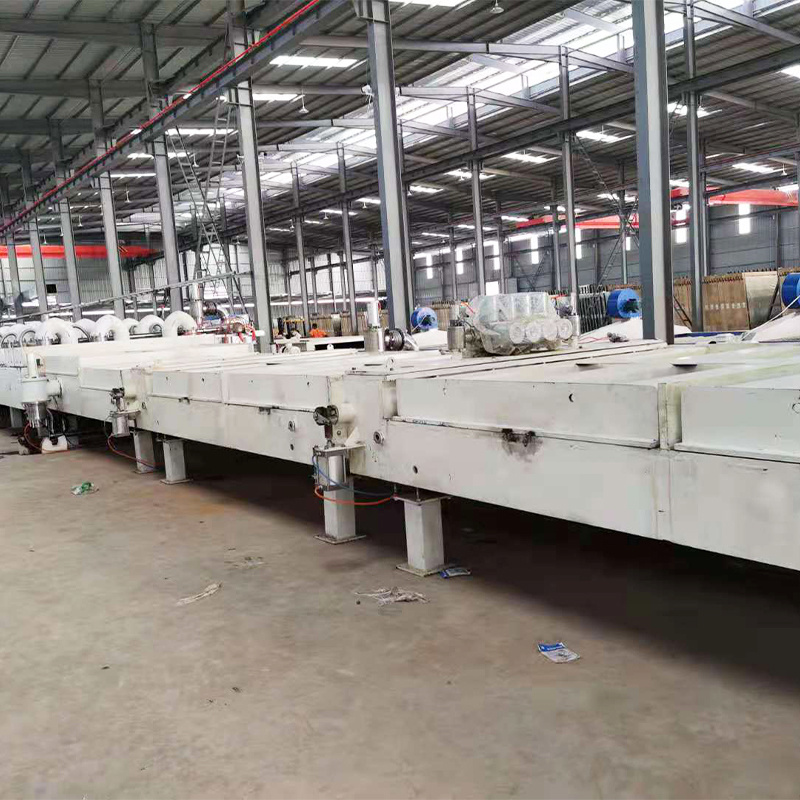Understanding Glass Coating Machines: A Key Component in Architectural Finishes
Time:
2025-08-07 09:20
In the architectural and decorative materials industry, particularly concerning steel materials and coating products, glass coating machines play a vital role in enhancing surface protection and aesthetics. These machines are designed to apply a specialized coating to glass surfaces, which can significantly improve their performance characteristics and longevity.
The primary function of a glass coating machine is to apply protective coatings that can resist scratches, chemicals, and UV rays, thus extending the lifespan of glass products. This is particularly important in environments where glass is exposed to harsh weather conditions or aggressive cleaning agents. The coatings can also enhance the visual appeal of glass surfaces by providing a glossy finish or matte appearance, depending on the desired aesthetic.
One of the key advantages of using glass coating machines in the construction industry is their ability to provide a consistent and uniform application of coatings. This consistency is crucial, as any irregularities in coating can lead to imperfections in the final product. Modern glass coating machines are equipped with advanced technology that ensures precise coating thickness and coverage, contributing to the overall quality of the finished glass.
Moreover, glass coating machines can be customized to accommodate various types of coatings, from hydrophobic to antifogging solutions. Hydrophobic coatings repel water, making them ideal for outdoor applications where moisture accumulation can lead to visibility issues or structural damage. Antifogging coatings, on the other hand, are essential for applications that require clear visibility in changing temperatures or high humidity environments, such as in public transportation or healthcare facilities.
In addition to functional benefits, glass coatings can also contribute to energy efficiency. Some coatings are designed to reflect heat or UV rays, reducing the energy consumption of buildings by keeping interiors cooler in hot weather. This can lead to lower cooling costs and a reduced carbon footprint, aligning with modern sustainability goals in construction.
In summary, glass coating machines serve as indispensable tools in the architectural and decorative materials sector, enhancing the durability, aesthetics, and energy efficiency of glass products. Their ability to provide consistent and high-quality coatings makes them essential for any project that incorporates glass elements. Understanding the capabilities and advantages of glass coating machines can greatly benefit professionals in the industry, leading to superior outcomes in building designs and finishes.
The primary function of a glass coating machine is to apply protective coatings that can resist scratches, chemicals, and UV rays, thus extending the lifespan of glass products. This is particularly important in environments where glass is exposed to harsh weather conditions or aggressive cleaning agents. The coatings can also enhance the visual appeal of glass surfaces by providing a glossy finish or matte appearance, depending on the desired aesthetic.
One of the key advantages of using glass coating machines in the construction industry is their ability to provide a consistent and uniform application of coatings. This consistency is crucial, as any irregularities in coating can lead to imperfections in the final product. Modern glass coating machines are equipped with advanced technology that ensures precise coating thickness and coverage, contributing to the overall quality of the finished glass.
Moreover, glass coating machines can be customized to accommodate various types of coatings, from hydrophobic to antifogging solutions. Hydrophobic coatings repel water, making them ideal for outdoor applications where moisture accumulation can lead to visibility issues or structural damage. Antifogging coatings, on the other hand, are essential for applications that require clear visibility in changing temperatures or high humidity environments, such as in public transportation or healthcare facilities.
In addition to functional benefits, glass coatings can also contribute to energy efficiency. Some coatings are designed to reflect heat or UV rays, reducing the energy consumption of buildings by keeping interiors cooler in hot weather. This can lead to lower cooling costs and a reduced carbon footprint, aligning with modern sustainability goals in construction.
In summary, glass coating machines serve as indispensable tools in the architectural and decorative materials sector, enhancing the durability, aesthetics, and energy efficiency of glass products. Their ability to provide consistent and high-quality coatings makes them essential for any project that incorporates glass elements. Understanding the capabilities and advantages of glass coating machines can greatly benefit professionals in the industry, leading to superior outcomes in building designs and finishes.
glass coating machine
Previous
News







